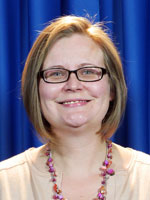
Principal Investigator: Traci Lepicki
Project Dates:07/23/2018-06/30/2019
Anticipated Total Award Amount: $654,500
Project Sponsor: Ohio Department of Higher Education
FY19 Aspire Professional Development Network
Since 1995, the Center on Education and Training for Employment has provided leadership and coordination of statewide adult education activities in collaboration with the state Aspire office at the Ohio Department of Higher Education, local programs, and a network of professional development providers. Our project supports the Ohio Aspire system through professional development, technical assistance, research, and evaluation activities. The project uses a process of continuous improvement to align to the state Aspire office strategic goals and priorities, ensuring that activities support Aspire programs and adult learners throughout Ohio.
CETE directs the Ohio Aspire Professional Development Network (PDN). We assist local Aspire programs in developing the skills and knowledge of their staff in order to increase the successful transition of students to postsecondary education, training, and employment. CETE staff members analyze, design, develop, implement, and evaluate training programs aligned to academic content standards, staff standards, and professional development standards for Ohio Aspire professionals. Additionally, we develop and validate standards, research and evaluate state initiatives, identify best practices, develop materials, and provide technical assistance to support planning, teaching, and learning in the Aspire classroom. We are dedicated to supporting and enhancing adult literacy and education throughout Ohio. The PDN’s key priorities for FY19 include 1) introducing new English language learning standards and supporting teachers’ incorporation of the standards into their practice, 2) offering additional training to improve administration of standardized tests and to improve use of test results to design instruction, and 3) collaborating with state personnel to provide program-level supports tailored to local program improvement needs.
Principal Investigator: Helen Malone
Project Dates:08/01/2018-07/31/2019
Anticipated Total Award Amount: $65,159.64
Project Sponsor: Franklin County Board of Mental Retardation and Developmental Disabilities
Buckeye behavior analysis services: FBDD
The following proposed project represents a continued partnership between OSU and FCBDD that will capitalize on current resources and target vocational and community skills training for students served by the Franklin County Board of Developmental Disabilities. Two (2) Graduate Associate (GA) positions are being requested.
In the state of Ohio (and nationwide) there is a push to increase meaningful employment for individuals with developmental disabilities. Under the Employment First Initiative, there is a continued push to close sheltered workshops, which have been a common next step for students with significant disabilities. One task set forth in this order is to “identify best practices” for employment. Not unlike IDEA, which requires students to be educated with evidence-based practices, the identification of best practices will require the collection of evidence to support those practices. Given this focus on transition-age youth and the expectation of preparing them for community employment, it is essential that work be done to identify evidence-based practices that will allow youth served through FCBDD to be successful in community employment. As such, OSU is proposing that two GA positions be funded that will continue to focus on exploring different practices and preparing subsequent staff trainings that will highlight how to implement practices that are effective in leading to vocational and community skill acquisition, generalization, and maintenance.
Two GAs will be assigned to West Central School and will work directly with thestudents and instructional staff. These GAs will be available to provide support in a variety of ways. First, they can assist teachers in conducting and interpreting relevant transition-related assessments (e.g., the Vocational Fit Assessment, preference assessments, functional behavior assessments). Second, using the information gathered through the assessments, they can assist teachers in working to build the prerequisite skills necessary for successful employment, such as communication. Third, the GAs can explore methods for decreasing challenging behaviors in an effort to increase the time students spend engaged in appropriate tasks, which will be essential if a student is to maintain employment in the community. In addition to the specific methods explored, data will be collected systematically so that effects of the various interventions can be attributed to the specific methods used. We will work directly with vocational training staff and teachers of students who are of transition age to identify the skills they believe are necessary for acquisition or reduction. We can then apply various methods to those skills to identify the procedures that are the most effective.
Once a series of data support the use of a particular procedure, we will develop brief training modules to share with the vocational staff and transition teachers so that they can maintain and appropriately fade out the interventions. They can also carry out the procedures in community settings with their students so that data on generalization and maintenance can be collected. They will be able to provide the GAs feedback on what they are able to maintain and what is too cumbersome. In this way, we can create an ongoing communication loop to address challenges as they arise, with the focus always remaining on providing the student access to appropriate community employment experiences. This work will be completed in collaboration with Deb Viney, who is the curriculum coordinator for the school, and Lillian Beck, the transition coordinator.
In addition to the aforementioned projects, we will be available to all teachers and support staff to provide support in appropriately modifying and adapting the curriculum to fit the
individualized needs of students as well as assist in embedding vocational and daily living skills instruction into academic targets.
Every 15 weeks (or at the end of each semester), outcomes will be evaluated on the following criteria: (a) number of students/clients/classrooms served, (b) educational and behavioral progress made with each student served, (c) number of training seminars or
workshops conducted, and (d) consumer satisfaction with the services provided (as measured through monthly online surveys). Additionally, progress reports will be sent to all parents (and
included in the students’ files) at the end of the school year detailing the progress their child made and the steps we recommend be taken in the future to ensure continued success. We will
also meet monthly with the Transition Coordinator, Curriculum Coordinator, GAs, and school principal to ensure that all needs are being addressed in a timely manne
Principal Investigator: Chris Zirkle
Project Dates:07/01/2018
Anticipated Total Award Amount: $112,000
Project Sponsor: Ohio Department of Education
Career-technical education (CTE) teacher education programs FY2019 funding
 Principal Investigator: Timothy San Pedro
Principal Investigator: Timothy San Pedro
Project Dates:
Anticipated Total Award Amount:$70,000
Project Sponsor: National Academy of Education
Lessons of indigeneity: Intergenerational learning…
This research project titled “Lessons of Indigeneity: Intergenerational Learning between Native American Mothers’ and Their Children” seeks to discover the ways Indigeneity is shared within and beyond the home and how such lessons may provide insight into the resiliency, survival, and academic achievement in schools. It actively challenges scholarship focusing on parental involvement since much of the work misses the multiple ways Indigenous (and nondominant) parents “…participate in their children’s education because they do not correspond to normative understandings of parental involvement in schools” (Bauedano-López, Alexander, Hernandez, 2013, p. 149). This work seeks to offer critical Indigenous frameworks to examine “parental involvement” in ways that forward cultural processes, which recenter mothers as educators, cultural brokers, and storytellers. In addition, it focuses upon what Indigenous Knowledges are shared, how they are taught and learned, and why children and their mothers feel it necessary to engage in such learning.

